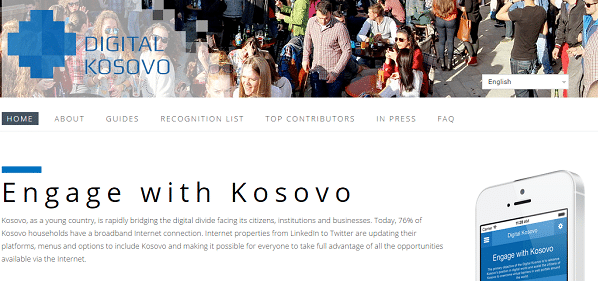“Facebook has recognized Kosovo.” You must have seen these viral headlines about a year ago. Now we get behind the scenes at CSW Europe in Copenhagen and get to know who has driven this change. The project of Digital Kosovo has existed for a little over one year. In the past 400 days, nearly 4 thousand contributors have joined the cause. As a result there are almost 80 recognitions worldwide.
“I was frustrated with unfairness and inequality online. This is how idea for Digital Kosovo came up,” tells founder of the platform Kushtrim Xhakli. Technology empowers people, makes a shift in international relations and raises profound issues. In case of Kosovo it is not political, but rather a logistical requirement. Tired of constant day-to-day troubles, residents of Kosovo want their state to be visible. “If UN does not recognize us, companies do not as well,” explains Kushtrim Xhakli, “But when they find out that it’s not about nationalism, but logistics, they calm down and modify their systems.”
A team of 8 social activists of digital diplomacy has grown into a big network. Now it is not a matter of who is the founder and who is the follower. Everybody is in the leading position. Crowd was driven to the project through workcamps and digital academies, where participants learnt how to create their own apps. Digital Kosovo app itself was also made by the community and did not require any funding.
The next goal is to make public services digital as well. Digital Kosovo is the ground for digitalizing data that will inevitably lead to further community involvement and access to digital resources. “Everything you start has to be in the hands of people,” assures founder of Digital Kosovo.Then domino effect occurs – one change stimulates a second one and so on. This is how Kosovo appears in the Ljubljana Airport system, on company websites and social media pages. And this is how digital diplomacy can unleash limitless opportunities to shape new identities for countries.





0 Comments